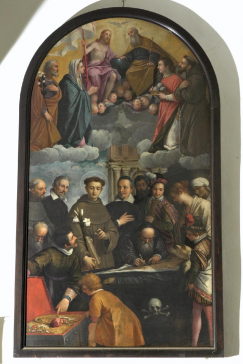The overarching objective of the project is to offer case studies of the epistemology of medicine in Renaissance Italy which show its impact in shaping early modern scientific and philosophical culture, especially on Galileo Galilei. The “epistemology of medicine” encompasses the logics of discovery, methods, heuristics, and languages that lead to a scientific knowledge of individual living beings. The research will show that medicine promoted a new epistemology concerning individuals, experience, and experiment, which helped give rise to experimental methodologies and an interventionist experience of nature. This epistemology changed the understanding of nature itself from the Aristotelian episteme, or scientia, to modern science as it emerged in the seventeenth century, influencing major authors like Johannes Kepler, Francis Bacon, Galileo Galilei, René Descartes, and Robert Boyle. The project will realize this objective by examining new and neglected material for historians of philosophy, by reshaping the interaction between theoretical and practical knowledge, and by showing how, dealing with the health of the people, medical epistemology had a strong impact on popular culture, more than astronomy and mechanics.
During the stay at MPIWG the research will focus on (1) the epistemology of Andreas Cesalpinus, (2) the epistemology of anatomy in Galileo Galilei, (3) and on the role of hypothesis in natural investigation with a special attention to Agostino Nifo, Jacapo Zabarella, Francesco Piccolomini, Francesco Buonamici, Galileo Galilei, René Descartes, Walter Charleton, and Robert Boyle.

